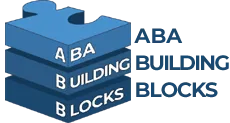Understanding the Importance of Advanced ABA Therapy Training
Are you overwhelmed by billing intricacies, struggling to keep up with the latest in therapy, and lacking in time for professional growth in the field of Applied Behavior Analysis (ABA)? You’re not alone. Meeting the high demands of a small ABA therapy practice while endeavoring to provide top-level care is no small task. It is a balancing act that many others across the industry are grappling with as well. An integral part of this balancing act is advanced ABA therapy training, a vital cog in the wheel of successful ABA practice.
ABA, a scientific approach to learning and behavior, has been the cornerstone of therapy for decades, especially for individuals with autism and related developmental disorders. With a deeper understanding of the subject and advanced training, the potential reach and effectiveness of the therapy can be magnified even further.
The Role of ABA Building Blocks in ABA Therapy Training
That’s where we, at ABA Building Blocks, come to your aid – providing support far beyond easing administrative duties. We offer specialized training and comprehensive ABA therapy support services, empowering you to focus on what you do best, the therapy itself.
Here’s a quick snapshot of the path to enhancing your ABA therapy training with us:
- Pursue Higher Education and Certification: Achieve the highest level of certification in ABA.
- Gain Practical Experience: Make the most of fieldwork positions for applied learning.
- Engage in Continuous Learning and Development: Stay updated with continuing education courses.
- Implement ABA therapy in Various Settings: Apply behavioral programming and skills in various environments.
- Understand and Address Patient’s Needs: Learn to tailor ABA services to meet the unique needs of each child.

Embarking on a journey of advanced ABA therapy training with us can be a transformative experience. So, ready to enhance your ABA therapy training? Dive into the rest of the article as we delve into each of these steps in more detail.
Step 1: Pursue Higher Education and Certification
The first step towards enhancing your ABA therapy training involves obtaining a solid educational foundation. This typically entails pursuing a Bachelor’s and Master’s degree in a relevant field such as psychology, education, or special education.
Importance of a Bachelor’s and Master’s Degree in a Relevant Field
Earning a Bachelor’s and Master’s degree in a field related to ABA provides the foundational knowledge and skills necessary to understand and implement behavior-analytic principles effectively. These degrees equip you with a deeper understanding of human behavior, developmental disorders, and effective intervention strategies. Furthermore, they often include courses in research methodology, statistics, and ethics, which are crucial components of advanced ABA therapy training.
The Process of Becoming ABA Certified
After obtaining your degrees, the next step in enhancing your ABA training is to become certified. As our expert Kim Finger, Ph.D. explains on our ABA Building Blocks page, the certification process involves completing a 40-hour training course, passing the competency assessment, and the RBT exam.
The Highest Level of ABA Certification: Board Certified Behavior BCBA-D
For those interested in reaching the pinnacle of ABA certification, pursuing the Board Certified Behavior BCBA-D credential is a worthy goal. This is the highest level of certification one can receive in the field of behavior analysis and is awarded to those with doctoral training in ABA. Achieving this level of certification not only validates your expertise in the field but also opens up opportunities for leadership and supervisory roles.
Enhancing your ABA therapy training is a journey, not a destination. Each step you take in your education and certification not only contributes to your professional growth but also to the quality of service you can provide to your clients. At ABA Building Blocks, we’re committed to supporting you every step of the way.
Step 5: Understand and Address the Needs of the Patient
When it comes to advanced ABA therapy training, one size does not fit all. Every individual has unique needs and abilities. As such, the therapy should be tailored to meet these specific needs. Here’s how you can achieve this.
How to Tailor ABA Services to Meet Each Child’s Needs
First, an initial assessment is necessary to understand the individual’s specific needs and challenges. This could be done by Board Certified Behavior Analysts (BCBAs) or master-level supervisors. At ABA Building Blocks, we work closely with our partners to provide timely diagnostic evaluations when needed .
Once a diagnosis is made, we customize our ABA therapy plan to accommodate the individual’s unique needs and circumstances. This isn’t a general solution but rather a tailor-made approach based on the relationship between an individual’s behavior and their environment. We consider factors like the individual’s communication skills, social skills, adaptive living skills, and play skills.
Understanding the Appropriate Amount of ABA Therapy for Different Patients
The intensity and duration of comprehensive ABA therapy are crucial factors to consider. According to various studies, programs providing 25 to 40 hours a week of therapy for 1 to 3 years have shown improvements in many children with autism . However, understand that every individual is different. Therefore, the amount of therapy required may vary based on the individual’s specific needs and progress.
The Importance of Positive Behavior Strategies in ABA Therapy
Our approach at ABA Building Blocks emphasizes positive behavior strategies. This involves increasing appropriate behaviors such as communication, cognitive skills, social skills, motor skills, and self-help skills, while decreasing maladaptive behaviors that interfere with a child’s everyday life.
One of the main strategies used in our ABA practice is positive reinforcement. When a behavior is followed by something valued, a person is more likely to repeat that behavior over time, encouraging positive behavior change .
In conclusion, understanding and addressing the needs of the patient are crucial aspects of advanced ABA therapy training. It’s about creating a personalized plan that considers the individual’s unique needs, determining the appropriate amount of therapy, and utilizing positive behavior strategies. By doing so, we ensure that our therapy is not only effective but truly beneficial for the individual.
In the next section, we will wrap up by discussing the impact of advanced ABA therapy training on career growth and security, and how ABA Building Blocks can enhance your ABA therapy training.
Step 2: Gain Practical Experience
In your journey towards advanced ABA therapy training, gaining practical experience is a crucial step. A core part of ABA training involves applying theoretical knowledge to real-world situations. This real-world experience is commonly known as fieldwork, and it’s an indispensable part of your training.
The Role of Fieldwork in ABA Therapy Training
Fieldwork allows you to apply the concepts and techniques you’ve learned during your academic training to real-life scenarios. It provides you with hands-on experience in delivering ABA services to individuals, enhancing your understanding of their unique needs and how to address them effectively. During fieldwork, you’ll likely work with a range of clients, which can greatly enrich your understanding and application of ABA principles.
Moreover, fieldwork also helps you build important professional skills, such as communication, problem-solving, and ethical decision-making. These skills are invaluable as you navigate the complexities of ABA therapy and work towards delivering the best possible outcomes for your clients.
How to Arrange Your Own Fieldwork Positions
Arranging your own fieldwork position can seem challenging, but there are resources available to assist you. Networking with professionals in the field, attending relevant conferences, and leveraging online platforms can all provide valuable opportunities.
At ABA Building Blocks, we understand the importance of fieldwork and offer resources to help you navigate this process. We’ll guide you through the process of finding suitable fieldwork positions, and provide you with the necessary support to ensure you’re gaining the most from your practical experience.
The Importance of Supervised Fieldwork Hours for Licensure and Certification
For licensure and certification, supervised fieldwork hours are a requirement set by the Behavior Analyst Certification Board (BACB). The purpose of supervision is to ensure that you’re applying ABA principles correctly and ethically. A supervisor, who is a Board Certified Behavior Analyst (BCBA), provides guidance, feedback, and support throughout your fieldwork experience.
Supervised fieldwork not only increases the quality of your practical experience but also ensures that you have the necessary skills and knowledge to practice independently. This requirement underscores the importance of quality in ABA services, ensuring that individuals receiving therapy benefit from the highest standard of care.
In conclusion, practical experience is a vital component of your journey towards advanced ABA therapy training. By gaining fieldwork experience and securing quality supervision, you’re building a solid foundation for your career in ABA therapy. At ABA Building Blocks, we’re here to support you in every step of this journey, helping you enhance your skills and make a meaningful impact in the lives of those you serve.
Conclusion
The Impact of Advanced ABA Therapy Training on Career Growth and Security
Investing in advanced ABA therapy training is not just about acquiring more knowledge and skills. It is about paving the way for a more fulfilling and secure career in the field of Applied Behavior Analysis.
By reaching the highest level of ABA certification, such as the Board Certified Behavior BCBA-D, you’re positioning yourself as a leader in your field. This opens up opportunities for career advancement, higher income, and increased job security. Moreover, the skills and competencies you gain through advanced ABA therapy training can be applied in various settings, thus broadening your professional horizons.
The Role of ABA Building Blocks in Enhancing Your ABA Therapy Training
At ABA Building Blocks, we understand the importance of continuous learning and development in the field of ABA. That is why we offer a comprehensive range of custom training programs designed to meet your unique needs, whether you are a Registered Behavior Technician (RBT) looking to advance your career or an ABA practice owner seeking to improve your team’s skills.
We take pride in providing up-to-date and comprehensive ABA trainings that align with the evolving needs of the industry. We believe that by equipping you with the right tools and knowledge, we can make a positive difference in the lives of those you serve.
In addition, we recognize the potential benefits of technology in ABA training. We are exploring ways to incorporate Artificial Intelligence (AI) to make our training programs more efficient and effective.
At ABA Building Blocks, you’re not just taking a step towards enhancing your skills, but building the foundations for a brighter future in ABA therapy.
Whether you are a beginner looking to start your journey in ABA or a seasoned professional aiming for advanced ABA therapy training, we are here to assist you every step of the way. To learn more about our training programs, you can explore our resources or get in touch with us through our contact page.
Every step forward in your ABA therapy training is a step towards making a positive impact in the lives of individuals with autism and related diagnoses.
Step 3: Engage in Continuous Learning and Development
As in any field, continuous learning and development are key to achieving success in ABA therapy. Even after obtaining your ABA certification, you must commit to a constant path of growth and improvement. This is where continuous education courses, workshops, and development programs come in.
The Role of Continuing Education Courses and Workshops in ABA Therapy
Continuing education (CE) courses and workshops are integral to keeping up with the ever-evolving world of ABA. These programs offer opportunities to stay abreast of the latest industry trends, techniques, and best practices, ensuring that you provide the best possible care to your clients. They can cover diverse topics, from advanced behavior strategies to ethical considerations in ABA therapy.
At ABA Building Blocks, we understand the significance of continuous education. We offer a wide array of custom training programs that cater to your unique needs, equipping you with the right tools and knowledge to make a positive difference in the lives of those you serve.
Understanding the Different Development Programs Available
There are numerous development programs available for professionals in the field of ABA therapy. Depending on your specific needs and career goals, you can choose from an array of online and in-person courses, workshops, and certificate programs.
For instance, if you’re looking to enhance your knowledge in a specific area of ABA therapy, consider a targeted workshop or course. Alternatively, a comprehensive certificate program might be more suitable for professionals aiming for a higher level of qualification or specialization.
ABA Building Blocks also invests heavily in training our Behavior Technicians to ensure that all individuals receiving ABA services get the highest quality of care. Our training programs are continually updated and optimized to meet the evolving needs of the industry.
How to Prepare for the BCBA Exam
If you’re preparing for the Board Certified Behavior Analyst (BCBA) exam, a structured study plan is crucial. You’ll need to thoroughly understand the BCBA task list and be familiar with the principles and procedures of ABA.
Consider using resources like the BCBA Exam Info provided by the Behavior Analyst Certification Board (BACB). This includes detailed information about the content of the exam, along with sample questions to help you practice.
At ABA Building Blocks, we strongly advocate for the use of BACB resources in your BCBA exam preparation. Our expert, Kim Finger, Ph.D., highly recommends these resources as they provide valuable insights and guidance throughout your certification process.
In conclusion, continuous learning and development are not optional in the field of ABA therapy. They are essential steps in your journey towards becoming a top-tier ABA professional. At ABA Building Blocks, we’re committed to providing you with the resources and support you need to achieve this goal.
Step 4: Implement ABA Therapy in Various Settings
The effectiveness of Applied Behavior Analysis (ABA) therapy can be significantly influenced by the environment in which it is applied. ABA therapy is not confined to a single location; it can be implemented in a variety of settings including homes, schools, and even community spaces.
Understanding the Different Settings for ABA Practice
ABA therapy can be provided in many different locations – at home, at school, and in the community. The choice of setting is dependent on the individual’s unique needs and circumstances. For example, some individuals may benefit from one-on-one teaching at home, while others may require group instruction in a school environment.
It’s important to consider the individual’s comfort and the potential distractions in each environment. Ideally, the chosen location should be a place where the individual feels safe and comfortable, and where the therapy can be delivered without interruptions.
How to Implement Behavioral Programming and Techniques in Different Environments
The application of ABA techniques varies based on the setting. When implementing ABA therapy in a home setting, the focus is often on developing daily living skills and improving behavior in a familiar environment. School-based ABA therapy, on the other hand, may emphasize social skills, academic performance, and classroom behavior.
For instance, at ABA Building Blocks, our trained Behavior Technicians carry out daily treatment programs, working closely with the individual to ensure the therapy is effective and tailored to their needs. We also offer blended treatment options, such as half in-home and half in a clinic, to provide a comprehensive approach.
The Role of Consistency in ABA Therapy
Consistency is key in ABA therapy. It’s crucial to maintain consistency in the application of therapy techniques across different settings. This means that the methods used to encourage positive behavior and discourage negative behavior should be the same at home, school, and in the community.
Our team at ABA Building Blocks understands the importance of consistency in advanced ABA therapy training. We work closely with families, teachers, and other relevant individuals to ensure the strategies used are consistent and effective across all settings. This consistency helps reinforce learned behaviors and skills, leading to more significant and lasting behavior change.
In the next section, we’ll explore how to understand and address the needs of the patient in ABA therapy. This is a crucial step in ensuring that the therapy is effective and truly beneficial for the individual.






